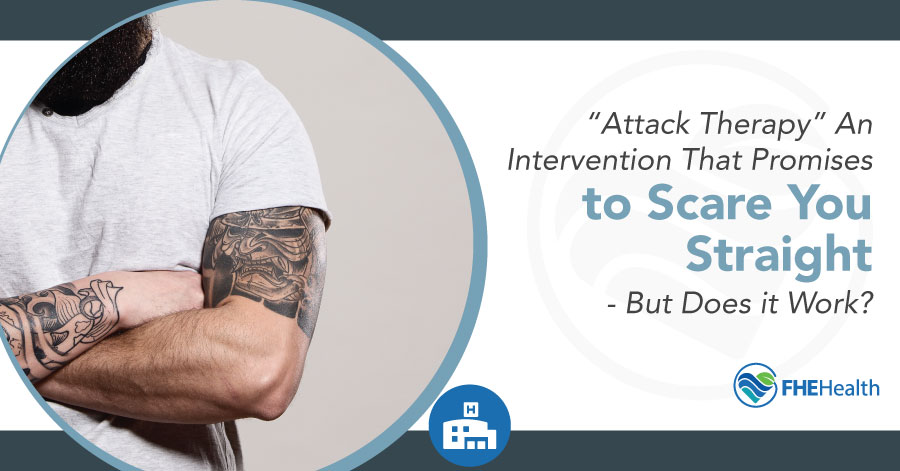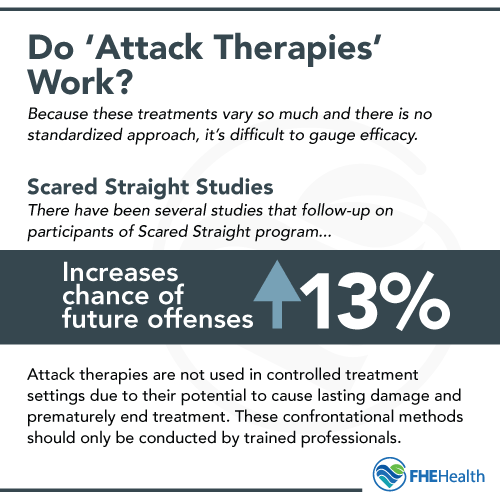
Maybe you’ve seen the A&E show Beyond Scared Straight, which dramatizes the practice of taking youth with behavioral issues and giving them a taste of how the path they’re on can lead to prison life.
The problem with sensational views of this type of treatment is that this and similar depictions never show you how the experience changes the subjects over the long term. You meet the problem kids, see how they’re treated in the detention facility of a given episode, and then you hear a few sound bites from a handful of them, saying how they’ve seen the error of their ways and promising they’ll get their acts together. It’s a happy ending, right?
But perhaps not. While some shows do a follow-up, and the results are often mixed, even the children with seemingly positive outcomes may not stay out of trouble long-term. Also, we should recognize a primal level of justice that we’re likely feeling when we see these troublemakers ‘face reality’. We shouldn’t confuse this sense of criminal justice we feel as a viewer with what actually helps the juvenile delinquents from committing crimes.
This is, in a certain fashion, a type of confrontational therapy. A handful of these therapies focus on responsibility and forcing young people to consider the consequences of their actions — gestalt therapy, attack therapy, boot camps, and scared straight programs — but do any of them work as intended? Is forcing people undergoing treatment to experience negative feelings effective as a way of reaching recovery?
This is what we’re going to explore. What are these controversial treatment options, and what value do they have in the modern treatment model?
The Landscape of Confrontational Therapies
A few of the therapies considered confrontational are attack therapy, gestalt therapy, scared straight programs, and boot camp.
What Is Attack Therapy?
 Perhaps the most controversial of the group, attack therapy involves intense confrontation. In addiction treatment, it integrates interactions between either the patient and a counselor or two patients in a group. The patient is reprimanded for their actions — in this case, continued use of addictive substances — with the idea that being made to experience negative emotions related to their addiction will motivate them to stop.
Perhaps the most controversial of the group, attack therapy involves intense confrontation. In addiction treatment, it integrates interactions between either the patient and a counselor or two patients in a group. The patient is reprimanded for their actions — in this case, continued use of addictive substances — with the idea that being made to experience negative emotions related to their addiction will motivate them to stop.
What Is Gestalt Therapy?
On the other hand, gestalt therapy is a much tamer form of confrontational therapy. It improves a patient’s self-awareness by taking an inward look at the actions that led them to this point. This can often be difficult and confrontational if only because it forces the patient to look directly at shameful events and mistakes in their past.
Gestalt therapy trains a patient to be present, both in their memories and what’s going on currently. Of the therapies discussed here, gestalt is among the most commonly used.
What Is Boot Camp Therapy?
Boot camp is a highly sensationalized form of therapy and is usually involuntary. Children with behavioral problems or who are using drugs or alcohol are sent to these boot camps that typically force them to live and sleep in uncomfortable circumstances and subject them to harsh elements and even manual labor.
There are some apparent ethical dilemmas involved with forcing people into hard work, especially when those under the age of 18, so boot camp treatment centers are not very common in the United States. There also is no standard for what constitutes a ‘boot camp’ program. The terms is usually a marketing angle used to appeal to perceptions of what you believe ‘a child needs.’
What Is Scared Straight?
Due to common depictions of “scared straight” programs in American media, this is often the therapy that comes to mind first when discussing confrontational methods of addiction and mental health treatment.
It can occur as it’s seen on TV; people go into prisons or hospitals and see those farther along the same path as theirs. The idea here is that when an addict or an unruly child sees someone similar to themselves suffering due to the consequences of their actions, they will see the error of their ways and be motivated to change.
So-called “scared straight” programs can work a lot like attack therapy in that there are no site visits. Some of these programs involve a therapist getting “real” with the patient, telling them how their life will be if they continue using and making them experience negative emotions about their actions.
Does Scared Straight Work?
 You are probably wondering to yourself, does attack therapy or scared straight work? Because these treatments vary so widely in practice and application, it’s difficult to say whether they do or don’t work. However, some statistics suggest there are better ways to reach those in treatment.
You are probably wondering to yourself, does attack therapy or scared straight work? Because these treatments vary so widely in practice and application, it’s difficult to say whether they do or don’t work. However, some statistics suggest there are better ways to reach those in treatment.
First, a look at the efficacy of scared straight programs with at-risk youths, like the ones depicted in Beyond Scared Straight: According to a few studies, scared straight programs encouraged participants to become future offenders by an average of 13%.
There’s less information about attack therapy, but it’s logical to believe that massive downsides would accompany any benefits. These confrontational treatments affect a patient’s self-esteem, so it could help patients with high self-esteem because it could show them the error in their ways without causing additional psychological damage. On the other hand, in patients with low self-worth, attack therapy and similar treatments have the potential to cause lasting damage.
Why a Trained Therapist Should Administer These Therapies
Questioning the effectiveness of some versions of these treatments isn’t the same as saying that they have no place in the modern treatment landscape. Different personality types lead to different types of addiction, and as such, different treatments have the potential to reach each patient best.
Still, the psychological risks of confrontational therapies can be major. Trained professionals in addiction and mental health treatment should be the only ones allowed to deploy such therapies as a means of treatment.
Our Approach to Addiction and Recovery
At FHE Health, we reach patients in healthy, responsible ways, whether in our facility to receive mental health issues or addiction treatment. The problem with attack therapies and similar confrontational treatments is that they’re difficult to control and not based on observation.
Evidence-based treatment programs like cognitive behavioral therapy, for example, are based on research and empirical evidence of success and can be more effective than treatments based on a misguided theory of how people change their behavior.
If you or a loved one is seeking treatment for addiction or a mental health condition, don’t hesitate. Contact the experienced team at FHE Health and learn more about how we can help you find lasting wellness.






